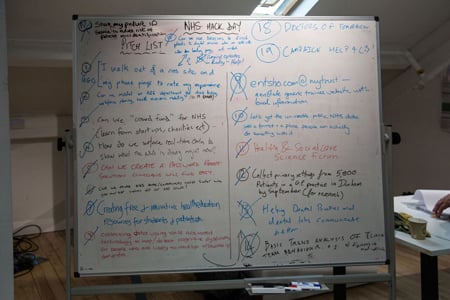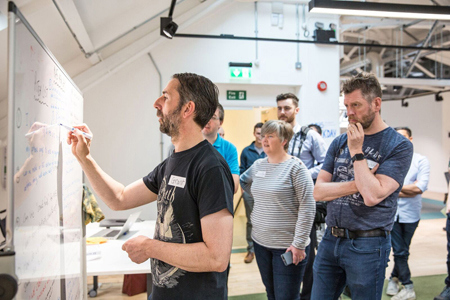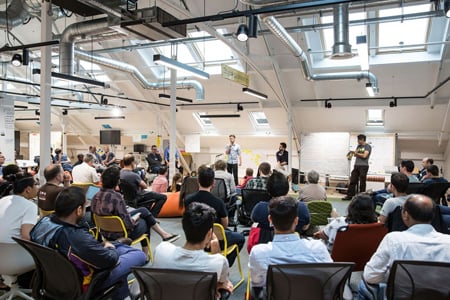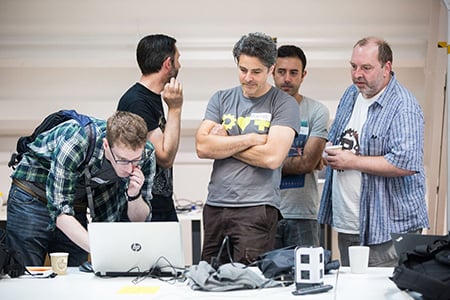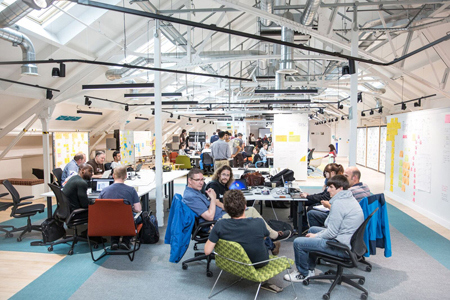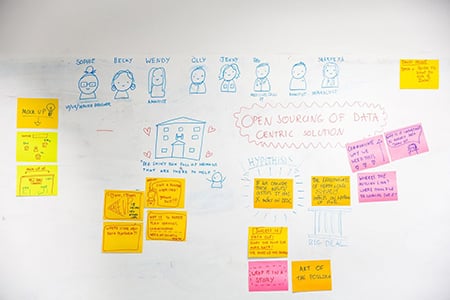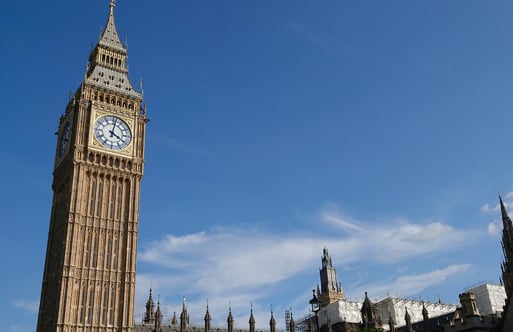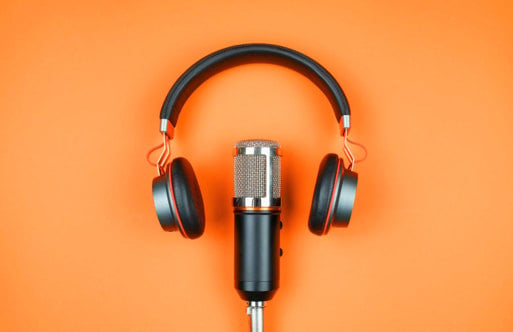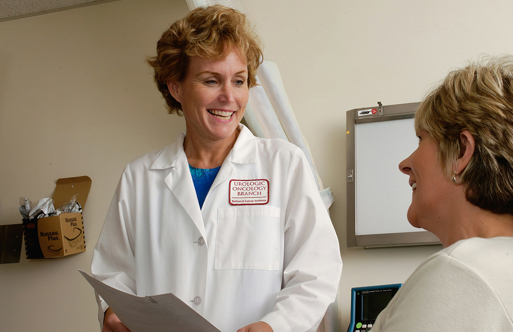The seventeenth NHS Hack Day took place in Manchester on 15 and 16 of July 2017.
The event was held at The Federation - the new home of Co-op’s digital production team, an open community for digital business and innovation. Federation also houses the national collection of Post-In notes.
‘It’s an unofficial software development day for the NHS,’ said Dr Marcus Baw, an NHS Hack Day founder, explaining the meetup’s ethos. ‘It allows us to step outside our everyday constraints - as clinicians and techies. It lets us come together and to focus on some new problems.’
‘Quite often, as resource strained clinicians, we don’t get time to consider the nicer stuff,’ Dr Baw continued. ‘At NHS Hack Day we can think about the fun things. And then we can spend two days learning about the problem and building a solution.’
A wide mix of people attended, not just hardened coders and geeks. They were there but so too were healthcare practitioners, students, CCIOs, academics, CIOs, data scientists - interested people from all walks of professional and amateur life.
NHS Hack Days follow a rough process:
- Pitching: People are invited to write their produce idea on a white board. When enough coffee has been drunk, each pitch’s originator gives a two-minute explanation of their idea to the group;
- Making it: After the talks, people coalesce naturally around ideas they like and begin bringing it to life;
- Hacking: Ideas are shared, friendships formed, code is written and product gradually comes together;
- Presenting: Each group presents their finished-ish product to the assembled hackers.
By design there’s very little structure or pre-agreed process. The ethos is very much one of a do-acracy - just do it and see what happens. As such teams borrow people. Skills are asked for and shared.
NHS Hack Day 17’s ideas whiteboard saw ideas like:
- Beaconified patients: A push service that uses location aware beacon location technology to provide patients with highly targeted and relevant content.
- Connectcases: Communication between dental practices and the companies that make dental appliances (false teeth, bridges crowns and the like) is lodged firmly in the world of paper. Huge amounts of time is lost filling out specification forms - forms that don’t fully allow dentists to communicate all the necessary details to manufactures. Connectcases aimed to do away with paper and replace it with an efficient web based portal.
- ED Sim: A real time model of an A&E department that encompasses real-world variables like patient flow. The model would allow for an exploration of provisioning and resource management.
- Margo/TeachMeMed: An Alexa-based system designed to help medical students prepare for their exams.
- Mobi-Alarm: Lone working among social workers is a growing trend and runs parallel with drives to keep people in their own homes. This can lead to social workers finding themselves in difficult situations. Mobi-Alarm allows social workers to send a very discrete ‘help’ message back to base.
- Ruby Records: Surgical records were stored in a records system built using an old - and potentially insecure - version of Ruby. A team set about rebuilding the legacy web app in Opal.
- Sci-Fi health: How will health and care feel in 2100? This project aligned with Kaleidoscope Health & Care’s writing prize. Are we heading towards a Brave New World; Frankenstein or Logan’s Run?
- Super Trendy: Electronic Health Record Data is a digital version of a patient’s paper record. This project aimed to explore data trends across a wide cohort of EHR information.
- TYME Capture: Test Your Memory Electronically in an early dementia diagnosis app. By taking regular voice prints, early signs of cognitive decline can be picked up and interventions made early.
- UGO Feedback: Do NHS services really provide a bad service? The truth is, we can’t know because no universal data set about the quality of service exists. After interacting with the NHS, people generally asked about their experiences. UGO is an SMS-based system that provides a frame work through which this data can be quickly and easily capture. Armed with this information, the NHS can evaluate the value of interactions with patients as exactly as possible.
Other projects explored how NHS public data can be modelled, explored and shared so it generates benefits for everyone.
